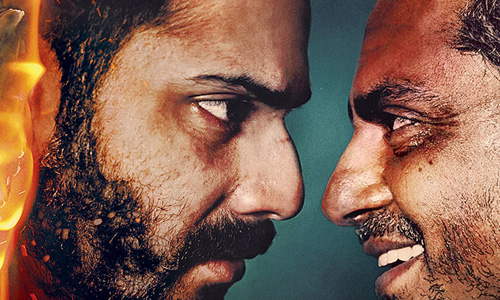"Badlapur": Fresh take on revenge drama genre

MUMBAI (Reuters) On the surface, Sriram Raghavan’s “Badlapur” is a visceral revenge drama, tracing one man’s unraveling as he pursues a vendetta against the people who ruined his life. Probe deeper, and you will find that Raghavan questions the genre and turns it on its head, and asks uncomfortable questions.
Raghu (Varun Dhawan) is a young, successful advertising executive whose wife and young son are killed in the aftermath of a bank robbery. Unable to come to terms with his loss, Raghu channels all his anger and frustration at Liaq (Nawazuddin Siddiqui), the man who apparently pulled the trigger. Then there is Liaq’s unknown partner, who took off with the money and the gun, and has never been caught.
Raghu turns into a shell of a man, living on the outskirts of the city in a dilapidated home that mirrors his moral decay. When he hears that Liaq has terminal cancer and wants to be released from prison, almost 15 years later, he sees the opportunity he’s been waiting for. (It’s significant to note the name of the film. Badlapur is a small town outside Mumbai, but non-Hindi speakers should consider that “Badla” means revenge, while “pur” means “city” or “town .”)
Based on a story by Italian author Massimo Carlotto, Raghavan adapts the Italian novel beautifully, telling his taut story without embellishments or fluff. He doffs his hat to Bollywood crime thrillers of the past as he has done before, and dots the film with wry humour that makes you laugh when you least expect it.
Take the scene in which Liaq, out of prison, goes looking for his lady love Jhimli (Huma Qureshi), in the brothel where she used to work. He asks after her, but is dismissed with the line, “this isn’t Maratha Mandir” – a sly reference to the Mumbai theatre which has been playing the same Bollywood film for the last 20 years.
The acting in the film is brilliant, especially Dhawan and Siddiqui. Dhawan, as the broken man who, instead of letting time heal his wounds, allows them to fester, is a revelation. Siddiqui is the perfect foil to Dhawan’s character, and even though their scenes together are few, you can feel the two working in tandem.
Where “Badlapur” falters is plot, and there are some errors in the production. Liaq is accused of murder and robbery, but Raghu’s pardon is enough to get him out of jail. People drive cars that didn’t exist 15 years ago. The characters seem to age hardly at all from the early scenes to the later ones. The quality of the rest of the film makes such flaws jarring.
Still, Raghavan takes one of the most worn-in genres in Bollywood and makes it fresh. Raghavan questions the nature of revenge, he questions whether the revenge justifies the crime, and whether our ideas of good and evil might need a rehaul. In an age when an eye for an eye is considered fair game, “Badlapur” makes us wonder if there is any point in keeping score.







